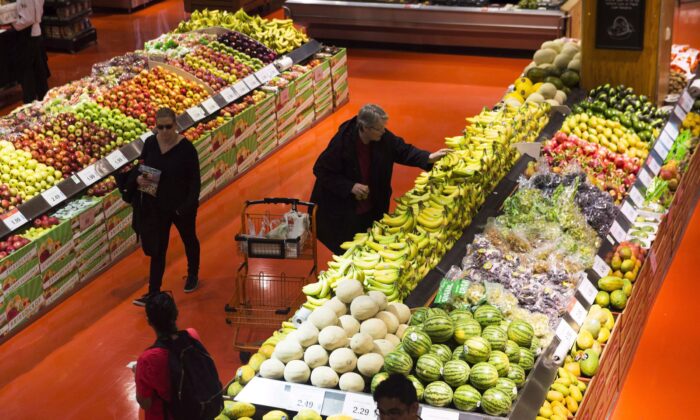Republicans, Democrats Grapple Over Rules as Senate Impeachment Trial Starts
Food, patriotism, and marketing will soon converge in a “Buy Canadian Promotion Campaign” sponsored by taxpayers. A new request for proposal from Agriculture and Agri-Food Canada calls for a five-year, $25 million marketing plan to “tell the story of, and build pride in, Canada’s food sector” and “promote Canadian products on the domestic market.”
The initiative is part of $134 million promised in the spring budget to launch Canada’s first-ever food policy. It includes $50 million for local food infrastructure, $24.4 million to address the mislabelling and misrepresentation of food, $15 million to facilitate healthy food in northern isolated regions, and $26.3 million to reduce food waste.
As part of the $25 million spent on the promotion campaign, $1.5 to $4 million will be spent each of the next five years on a digital-first ad strategy, the aim being to “tell the story of Canada’s agri-food sector and reach audiences on an emotional level.”
“This is a great idea, in theory, but could easily turn into a marketing disaster,” says Sylvain Charlebois, professor and senior director of the Agri-Food Analytics Lab at Dalhousie University.
The problems start at the premise, he says. “What is Canada’s brand? I’m not sure there’s any consensus other than some bureaucrats in Ottawa who could agree on what Canada’s brand is.”
Charlebois says it is unclear whether the intention is to promote food products labelled “Product of Canada” to signify they contain at least 98 percent Canadian content, or those labelled “Made in Canada,” which meet a 51 percent threshold.
“If this initiative is about promoting the industry and providing transparency, then processing, distribution, and service need to be in scope,” he says.
A national campaign might be at cross-purposes with the “buy local” movement that the federal food strategy also seeks to promote. Aliments du Quebec, FoodLand Ontario, Canada’s Food Island in Prince Edward Island, and Buy BC are all successful examples of provincial campaigns.
“At this point, adding a federal layer of marketing would only add more noise,” Charlebois says. Besides, “‘Buy Canadian’ in some parts of the country, like Quebec for example, may not be the greatest of ideas. Just ask Walmart. Their ‘Buy Canadian’ campaign was a disaster in La Belle Province.”
Charlebois says it will be “tricky” to promote Canada without creating the perception of protectionism. At worst, Canada would lose a challenge given to the World Trade Organization, such as the United States did with its Country of Origin Labelling plan.
“I think we have a problem in Canada with how we see ourselves,” Mathew Wilson, senior vice-president of the Canadian Manufacturers & Exporters, told the Commons international trade committee in 2017. “We don’t celebrate anything that’s made in Canada anymore.”
Wilson added, “We have a world-class brand image as a grower of healthy, affordable, high-quality food, yet we don’t export it. One of the lowest export commodities we make is agricultural products. It’s crazy. … Canadian producers often send stuff other places and then it comes back in as finished product and we buy it as Turkish or Israeli or something else, when it’s all Canadian to begin with.”
Last year, a revamped Canada Food Guide issued by Health Canada de-emphasized meat and dairy in favour of grain and vegetables. “The dairy industry really did not like that,” Charlebois says. He expects that the current campaign will promote all commodities because the mandate of Agriculture and Agri-Food Canada is to promote the industry itself.
The department’s request for proposal notice says, “Canadians generally prefer to buy Canadian food products when they are available, believing that food produced in Canada is of good or excellent quality.” Even so, this is “largely based on perception or very limited actual knowledge,” it noted.
In a survey conducted by Summit Research last fall, 91 percent of Canadians said they knew little, very little, or nothing about modern farming practices, though 60 percent wanted to know more.
This article is from the Internet:Potential and Pitfalls for Buy Canadian Campaign
Supreme Court Denies House, Blue States’ Effort to Fast-Track Obamacare Appeals
